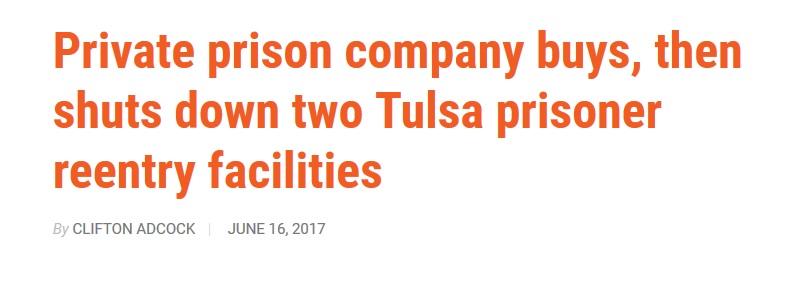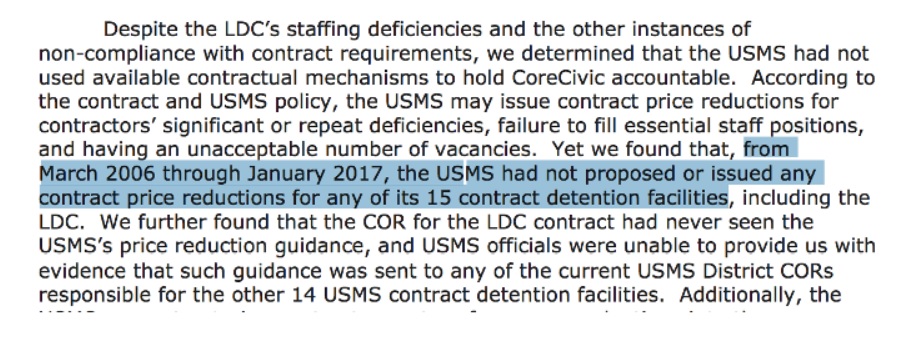In the $500 billion game of federal procurement, private prisons hold a top ten spot among the beneficiaries. A recent Inspector General report and fresh court challenges highlight some of the questionable methods by which privatized corrections have held their place in the criminal justice landscape.
1. Controlling the field.
An industry that once saw over a dozen competitors has shrunk over the last three decades, as the major players have consolidated their markets and strategically purchased their smaller competitors, challenging the assumption that a competitve market would lead to improvements in corrections operations.

2. Political contributions.
For decades, there has been a prohibition on contractors making political donations. But in a lawsuit filed last month, the Campaign Legal Center is challenging the hundreds of thousands of dollars contributed by both GEO Group and CoreCivic to pro-Trump super-PACs during the 2016 elections.
3. Single-source contracting.
An April report from the Department of Justice Inspector General looking at the U.S. Marshals Service contract with CoreCivic in Leavenworth, Kansas highlighted a series of failures with the agreement, beginning with the very basic requirements it laid out. In a detail that would seem to be designed to specifically favor the pre-existing facility in Leavenworth, the contract required that respondents provide their services in that one town, though there was no particular necessity in so limiting the location.

4. Slavery.
A lawsuit alleging that immigrant detainees at GEO Group’s Denver Contract Detention Center had been subjected to forced labor. The challenge reached class action status this spring. According to a GEO Group statement: “Our facilities, including the Aurora, Colo. Facility, are highly rated and provide high-quality services in safe, secure, and humane residential environments pursuant to the Federal Government’s national standards.”
5. Failure to penalize.
Finally, and most frustratingly, as highlighted in the DOJ IG report, there’s the government’s own failure to penalize its contractor in any way at any time for its deficiencies.

Want to learn more about prison privatization? Check out the Private Prison Project and join the mailing list. Tips? Let us know at info@muckrock.com
Image via Pexels




